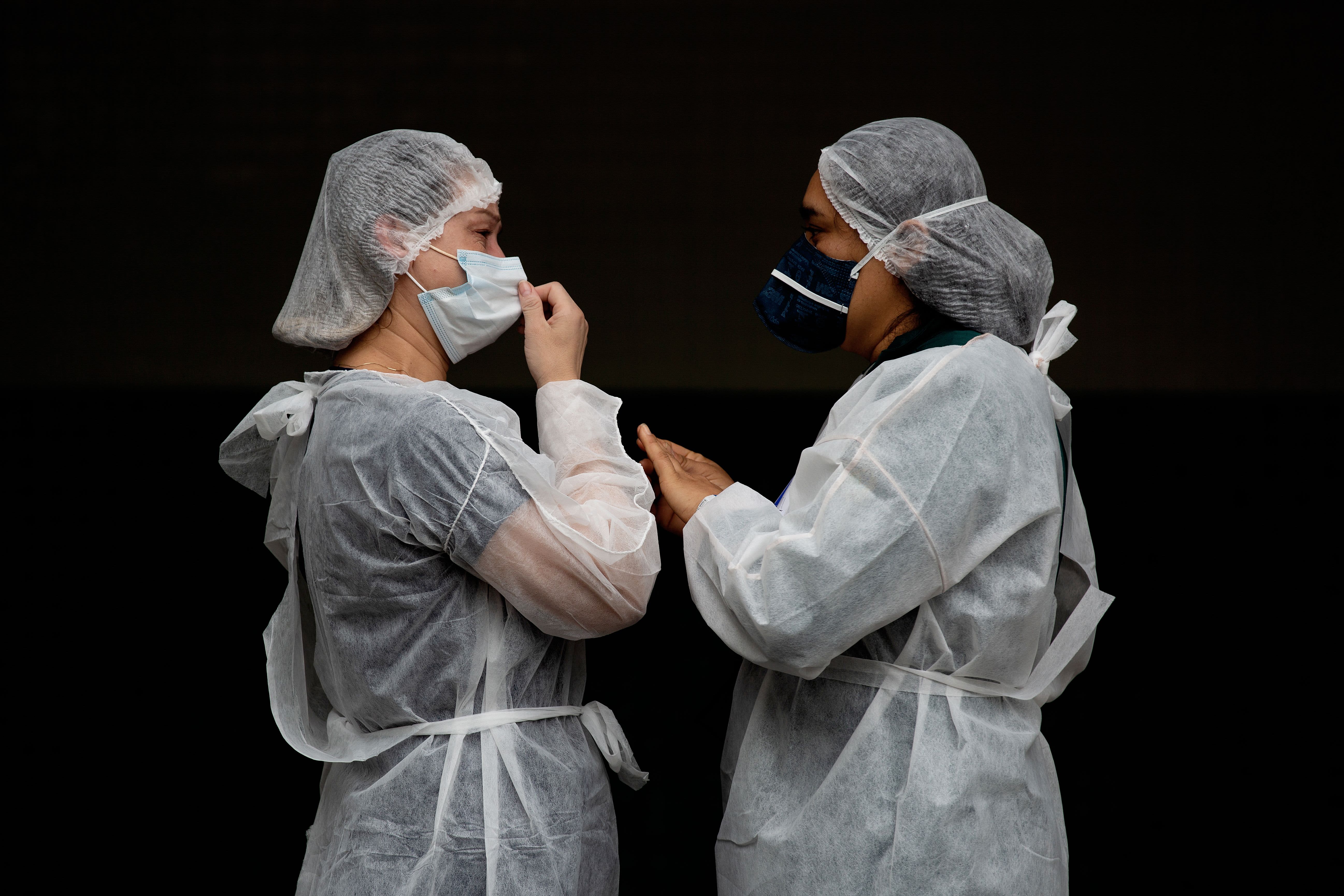
Nurses talk in front of the 28 de Agosto Hospital in Manaus, Amazon State, Brazil, on January 14, 2021, amid the novel coronavirus, COVID-19, pandemic.
MICHAEL DANTAS | AFP | Getty Images
Gov. Andrew Cuomo said on Saturday that a more contagious Covid-19 variant, originally identified in Brazilian travelers, has now reached New York.
The strain was detected by scientists at Mount Sinai hospital in New York City and verified by the Department of Health’s Wadsworth Center Laboratories. The center collects about 90 random samples each day for genomic sequencing and has sequenced more than 8,200 samples statewide.
The patient with the Brazil variant is a Brooklyn resident in their 90s with no travel history, according to a press release.
“The detection of the Brazilian variant here in New York further underscores the importance of taking all the appropriate steps to continue to protect your health,” Cuomo said. The governor urged New Yorkers to continue wearing masks, avoid crowds and get a vaccine when eligible.
The Brazil strain, called P.1, was first identified in four travelers from Brazil who were tested during a screening in Tokyo, Japan, according to the Centers for Disease Control and Prevention.
The P.1 variant was discovered in the U.S. at the end of January. The CDC has since reported 48 cases nationwide. The strain has a set of additional mutations that could impact its ability to be recognized by antibodies.
There’s evidence the variant is more contagious and has the potential to reduce vaccine effectiveness. Researchers at the University of Oxford recently released non-peer reviewed data suggesting it could be less resistant to vaccines. However, additional research is needed.
Cuomo’s announcement comes as daily cases increase in New York and 20 other states. Death rates and hospitalization rates are on the decline in New York as vaccine distribution accelerates.
